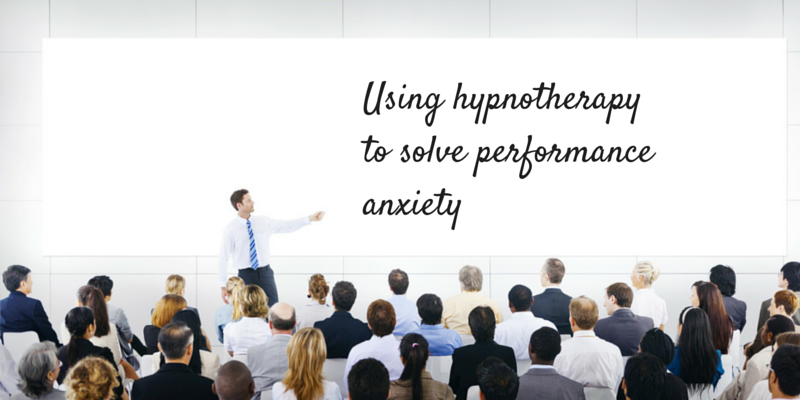5 Ways Heart-Centered Hypnotherapy Can Help Treat Opioid Addiction
The opioid crisis is sweeping the nation, with no signs of letting up. Mental health professionals are seeing their offices and clinics swamped with clients seeking life-saving relief from their crippling addictions.
Opioid use disorder — specifically the abuse of heroin, fentanyl, and prescription pain medication — is killing countless people daily. Alcohol, methamphetamine, cocaine, and cannabis can be almost as devastating, triggering anxiety, depression, and hallucinations that can ruin lives.
As clinical director of Our Solutions Recovery in Fort Lauderdale, Fla., Rachel Greenberg is on the front lines.
Treatment centers like Greenberg’s represent the silver lining in the darkening clouds of the opioid epidemic. In recent years, scientists have taken great strides in our understanding of brain chemistry and how to change habits and addictions. Leading clinics and psychotherapists are applying their findings.
“We and other caring facilities continue to provide safety and solid treatment plans as we collaborate with the clients on their healing,” Greenberg says. Successful treatment takes an intense and multi-disciplined approach to treating substance abuse.
Our Solutions Recovery provides a model treatment protocol in which clients attend their daily group therapy seven days a week. The sessions include meditation, music therapy, cognitive behavioral therapy, art therapy, sex therapy, nutrition counseling, and exercise. The clients have at least one individual therapy session weekly and meet with a psychiatrist who oversees their medication to help with withdrawal symptoms and treat their disorders.
But among the many modalities Greenberg applies, one has proven itself especially effective for preventing relapses: Heart-Centered Hypnotherapy. In Greenberg’s experience, it works.
“What we know about preventing relapse is we must help people release their shame — the idea that there is something wrong with them because of their past,” Greenberg explains. “The good news is Heart-Centered Therapy has been the best vehicle to help clients get to the root of their shame and release it from their subconscious minds. I know and have seen how Heart-Centered Therapy has created long-term abstinence and helped clients create new healthy ways of behaving.”
What Is Heart-Centered Hypnotherapy?
Heart-Centered Hypnotherapy is a treatment model developed and taught by the experienced experts at The Wellness Institute. Building on the well-established practice of hypnotherapy, Heart-Centered Hypnotherapy addresses body, mind, and spirit. Hypnotherapists help their clients access their subconscious minds, where the keys to their health and healing reside. An important aspect of this modality is age regression to the early life experiences that may be the source of addictive behaviors. Heart-Centered Hypnotherapy combines Gestalt therapy, Neuro Linguistic Programming (NLP), and inner child work, with the client’s own spiritual connection. The modality also addresses upheaval in the central nervous system, what is called shock, which is especially necessary in treating addictions.
How Heart-Centered Hypnotherapy Can Treat Opioid Addiction
In a 2015 article, Diane Zimberoff, one of the founders of Heart-Centered Hypnotherapy, described a three-stage process of hypnosis for treating those suffering from addiction to pain medication, prescribed or otherwise.
From her vantage point on the front lines of the opioid epidemic, Greenberg has found five Heart-Centered Therapy tools to be effective against addiction:
- Introducing Repulsive Imagery
Using hypnosis to associate repulsive images and feelings with addictive behaviors, therapists can introduce new, healthy behaviors to replace them. This is an initial step in the treatment process, assisting the client to achieve abstinence long enough to enter a therapy with a clear mind and asymptomatic body.
- Taking Clients to Their Favorite Place
By taking clients (in their subconscious minds) to safe, comfortable places, therapists can help them establish anchors there, reducing anxiety and urges. The client creates a safe refuge that is available to use whenever anxiety or urges become overwhelming. This becomes an antidote to the client’s shock state, beginning to create a “new normal”.
- Age Regression
Long-held, erroneous beliefs can be the root cause of addiction. Typically, these are beliefs patients create at a young age: “I am not good enough,” “I am a failure,” “I will never amount to anything,” “I am stupid.”
Age regression, through hypnotherapy, helps clients get at these root causes, identify them, and work towards removing them from their belief systems. These beliefs are generally deeply embedded and unconscious, and changing them requires some diligent effort. Returning to the child ego state that first formed these beliefs is the most effective method of identifying them and correcting them.
- Teaching Clients to Identify Their Role in the Victim Triangle
The victim triangle (described here by the Wellness Institute) is the foundation for codependency. Addicts often come from families in which boundaries were crossed or unclear, and in which there was a victim, rescuer, and persecutor.
When Heart-Centered Therapists help people recognize their victim consciousness and teach them how to acknowledge when they are ‘playing the victim, clients shift from that role to accepting 100 percent responsibility for their actions. They can no longer be a victim to the disease of addiction.
After making this breakthrough, clients start to feel empowered. They realize that they created their life and, therefore, they can learn new ways of thinking and behaving, and create a new lifestyle that is healthy and fulfilling.
- Starting Young
After witnessing so many people overcome addiction with Heart-Centered Hypnotherapy, Greenberg has come to believe that it can serve a preventive role, as well.
“The practice of Heart-Centered Therapy — for all ages — would prevent illnesses, relationship problems, and unnecessary deaths,” she says.
If children in elementary, middle, or high school learned Heart-Centered techniques such as breaking free from the victim trap, creating healthy habits, self-regulating the nervous system to avoid the disabling condition of shock, and learning to love themselves, much unnecessary suffering could be avoided, Greenberg believes. “Especially when faced with traumas or abuse, many people would really benefit from Heart-Centered Therapy, and ideally prevent the tragic cycle of addiction from beginning in the first place.”.
Bring Heart-Centered Hypnotherapy to Your Practice
Whether you’re helping your clients battle opioid addiction, recover from depression, deal with unhealthy relationships, or almost any other psychological challenge, Heart-Centered Hypnotherapy can help. Heart-Centered techniques are effective, fast-acting, and life-changing.
Professionals like Greenberg learn to practice Heart-Centered Hypnotherapy in six-day training courses held throughout the United States. They deepen their knowledge with advanced internships, leadership, and mentorship programs.
(To learn more, read our recent article, “What is Heart-Centered Hypnotherapy?”)
To enroll in a six-day hypnotherapy training course near you, click here.








